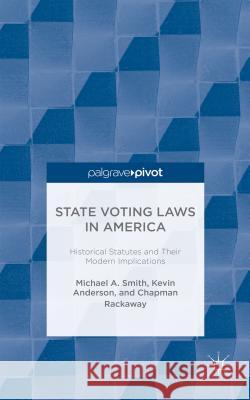State Voting Laws in America: Historical Statutes and Their Modern Implications » książka
topmenu
State Voting Laws in America: Historical Statutes and Their Modern Implications
ISBN-13: 9781137492654 / Angielski / Twarda / 2014 / 87 str.
State Voting Laws in America documents changing views on voting rights, emphasizing court rulings which shaped our understanding of what constitutes a legitimate right to vote.











